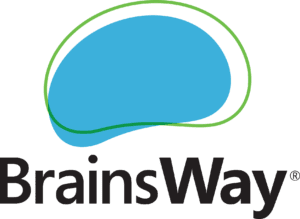BrainsWay’s Deep Transcranial Magnetic Stimulation (Deep TMS™) is a unique, non-invasive treatment that utilizes magnetic fields to treat various mental health conditions, by effectively regulating the neural activity of brain structures found to be associated with those conditions. FDA-cleared to treat both depression and OCD, Deep TMS has been shown to be well-tolerated and proven effective in alleviating adverse symptoms.
During the Deep TMS treatment process, a padded helmet containing BrainsWay’s patented H-coil is fitted over the patient’s head. The helmet then sends out magnetic pulses that influence the neural activity of the relevant brain structures. The non-invasive treatment process does not require anesthesia and each session lasts about 20 minutes, allowing you to incorporate them into your daily routine.
With Deep TMS technology at the forefront of mental health therapy, BrainsWay continues to strive to offer relief to patients in need.

